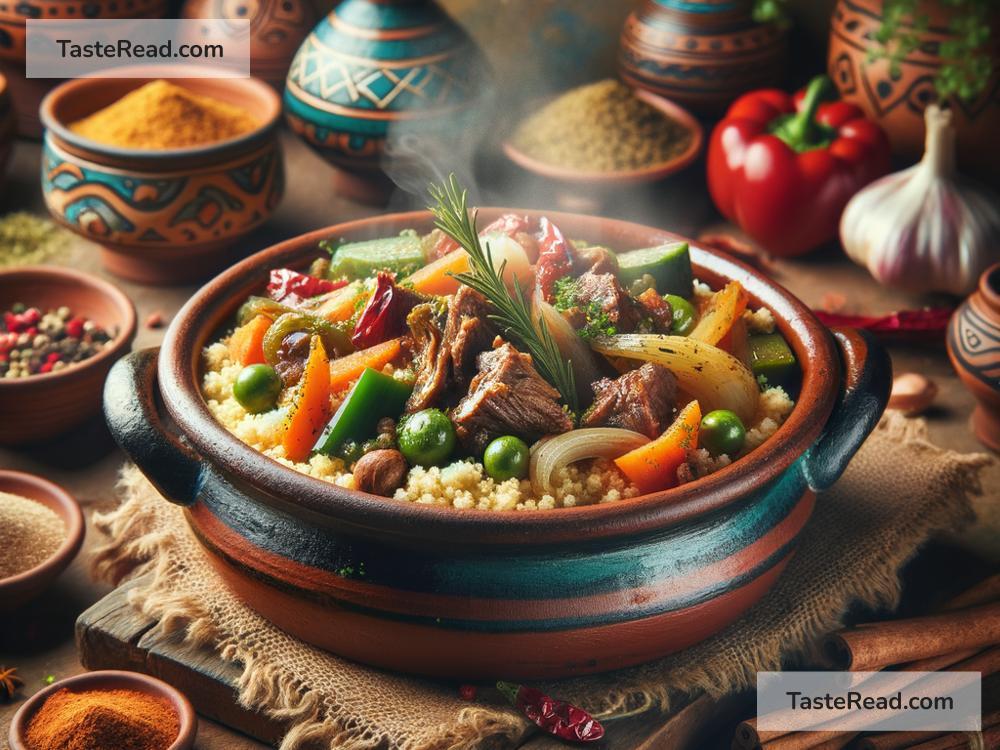Title: A Journey Back in Time: Uncovering the Origins of Tunisian Couscous
Couscous, a delectable treasure of Tunisian cuisine, may often be found gracing our dinner tables with its delightful flavors and textured grains. This humble dish, deeply woven into the fabric of Tunisian culture, carries within it stories of ancient traditions, long-held customs, and a rich history that traces back to the dawn of civilization. Today, let’s embark on a fascinating journey to explore the roots of Tunisian couscous and discover how this simple dish became a cornerstone of Tunisian identity.
Long before couscous became a global sensation, it was a staple in North African cuisine. Historians suggest its origins may be as ancient as the Berbers, the indigenous people of North Africa, who are believed to have been the first to cultivate and prepare couscous as early as the 7th century. This theory is supported by the fact that couscous-making tools and equipment have been excavated in tombs dating back thousands of years, indicating its deep historical roots in the region.
From these humble beginnings, couscous began its journey across continents, evolving and adapting to the tastes and traditions of each new culture it encountered. However, it is in Tunisia where couscous truly found a distinctive identity, thanks to the country’s unique culinary heritage and the influences of various civilizations that have passed through its lands, including the Phoenicians, Romans, Arabs, Ottomans, and French.
Tunisian couscous is not just a dish; it’s an art form, a labor of love that requires patience and skill. Unlike its Moroccan or Algerian counterparts, which may feature sweeter elements like raisins or cinnamon, Tunisian couscous leans towards a more robust and spicy flavor profile. It’s traditionally served with a fiery broth, meat (lamb, chicken, or fish), and a medley of vegetables such as carrots, potatoes, and zucchini. What sets it apart is the use of spices like harissa, a spicy chili pepper paste, giving it its distinctive kick.
The preparation of couscous is an integral part of Tunisian culture and often serves as a communal activity, bringing families and communities together. Making couscous involves steaming the semolina grains over a pot of boiling stew until they are fluffy and tender. This process, though time-consuming, is a cherished tradition passed down through generations, symbolizing the importance of family, hospitality, and sharing in Tunisian society.
Couscous is also deeply embedded in Tunisian traditions and celebrations. It is a dish that transcends mere sustenance, representing unity, joy, and the comfort of home. During religious festivals, weddings, or family gatherings, couscous is almost always present, serving as a centerpiece around which people gather to celebrate life’s moments, big and small.
One cannot discuss the significance of couscous in Tunisia without acknowledging its role in fostering unity and identity. In a land where diverse cultures and traditions blend seamlessly, couscous stands as a symbol of harmony and cooperation. It embodies the spirit of Tunisia — a country that, despite its small size, boasts an immense cultural richness and a big heart.
In recent years, there has been a growing appreciation for couscous on the international stage, with calls for it to be recognized as a UNESCO Intangible Cultural Heritage. This movement highlights the dish’s historical and cultural significance, not just to Tunisia, but to the entire Maghreb region, and underscores the importance of preserving traditional culinary practices for future generations.
As we conclude our voyage through time, it’s clear that Tunisian couscous is much more than just a dish; it’s a testament to the country’s enduring spirit, rich history, and the unifying power of food. From the ancient Berber villages to modern Tunisian homes, couscous continues to be a source of comfort, a cause for celebration, and a bridge between past and present.
So the next time you find yourself savoring a spoonful of this exquisite dish, take a moment to appreciate the centuries of history, tradition, and love that have gone into its creation. Tunisian couscous invites us not only to enjoy its flavors but also to reflect on the profound connections that food can forge among people, across time and cultures.


